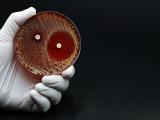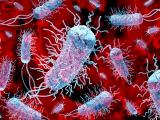Nov 6, 2012
Congressional committees schedule fungal meningitis outbreak hearings
Two Congressional committees will hold hearings next week on compounding pharmacy oversight in the wake of a multistate fungal meningitis outbreak, with the House Energy and Commerce (E&C) Committee's oversight subcommittee taking up the issue Nov 14, followed by a Nov 15 hearing before the full Senate Health, Education, Labor, and Pensions (HELP) Committee. On Oct 25 the Senate committee issued letters requesting documents to assist with its probe of the outbreak. Requests went to New England Compounding Center (NECC), the firm that produced the tainted injectable steroids, the Massachusetts Board of Pharmacy, and the US Food and Drug Administration (FDA). Meanwhile, the House E&C Committee said in a statement that its subcommittee has invited FDA Commissioner Margaret Hamburg, MD, as well as James Coffey, director of the Massachusetts Board of Registration in Pharmacy, and Barry Cadden, NECC owner and director of pharmacy. The committee also launched its investigation in October and requested initial briefings from the FDA, Centers for Disease Control and Prevention (CDC), and NECC and has requested documents from the Massachusetts Board of Registration in Pharmacy, the FDA, and NECC. So far the outbreak has affected 19 states, sickening 419 people and killing 30. The CDC said it would update case numbers tomorrow.
Nov 5 House E&C Committee statement
Senate HELP Committee hearing information
Oct 25 Senate HELP Committee statement
ECDC weighs in on new coronavirus report
Saudi Arabia's recent report announcing that a third patient has been diagnosed as having a novel coronavirus infection doesn't change the European Centre for Disease Prevention and Control's (ECDC's) assessment that the current risk is low, the agency said in a statement today. On Nov 4 Saudi Arabian officials reported the third known case of human infection with a novel coronavirus, in a Saudi man who was hospitalized in intensive care but is recovering. Though reservoir and route of transmission haven't been confirmed, all three patients were exposed on the Arabian Peninsula, and there is no evidence of human-to-human spread, the ECDC said, adding that new information about the third case does not change the conclusions it detailed in a Sep 24 risk assessment issued after details of the first two cases were announced.
Nov 6 ECDC statement
Nov 5 CIDRAP News story "Saudi Arabia reports third novel coronavirus case"
Wastewater at US treatment plants found to contain MRSA
Researchers who tested water at four US wastewater treatment plants found methicillin-resistant Staphylococcus aureus (MRSA) in half of the samples, though full treatment removed the pathogen in most cases, according to a report in Environmental Health Perspectives. Amy R. Sapkota, PhD, of the University of Maryland, who led the research team, said this was the first study to look into US wastewater as a potential environmental reservoir for MRSA, which has been found at wastewater treatment plants in Sweden, according to a university press release. The team collected samples from throughout the treatment process at two mid-Atlantic treatment plants and two in the Midwest, which were chosen partly because their treated water is used for spray irrigation. The researchers found MRSA in half of the samples and also found methicillin-susceptible S aureus in 55% of samples. MRSA was found in 83% of the raw sewage at all four plants, but the percentage of positive samples decreased with each treatment stage. The pathogen was found in discharge (fully treated) water at only one plant, which does not routinely use chlorination, a tertiary treatment step, according to the release. "Our findings raise potential public health concerns for wastewater treatment plant workers and individuals exposed to reclaimed wastewater," said Rachel Rosenberg Goldstein, MPH, the study's first author.
Nov 5 University of Maryland press release
Nov 1 Environ Health Perspect abstract
FDA committee supports approval of inhalational anthrax treatment
GlaxoSmithKline (GSK) announced that the FDA Anti-Infectives Advisory Committee on Nov 2 voted in support of the company's monoclonal antibody raxibacumab as a treatment for inhalational anthrax, according to a GSK statement. The drug was developed by Human Genome Sciences (HGS) under a contract with the Biomedical Advanced Research and Development Authority (BARDA). GSK acquired HGS in July. The committee voted 16 to 1, with one abstention, in support of raxibacumab's clinical benefits, and the vote was unanimous in favor of the drug's risk-benefit profile. The committee's vote is nonbinding, and the FDA makes the final decision. The deadline for the FDA to approve raxibacumab is Dec 15. Raxibacumab targets the protective antigen of the lethal toxin of Bacillus anthracis. The most commonly observed adverse reactions were headaches, upper respiratory tract infection, nausea, extremity pain, and itching. Local skin reactions in one study led to recommendations that patients receive an antihistamine before raxibacumab infusion.
Nov 2 GSK statement
Experts air countermeasure advice for melioidosis, glanders
A new consensus report published today details the first countermeasure recommendations against melioidosis and glanders—two diseases that are potential bioterror threats. The US Department of Health and Human Services (HHS) Public Health Emergency Medical Countermeasures Enterprise (PHEMCE) convened a workshop of subject matter experts on the two diseases in 2010, and the group published a report today on its recommendations in Emerging Infectious Diseases. Melioidosis is caused by Burkholderia pseudomallei, and glanders is caused by B mallei. Both are on the government's select agent and toxin list. The expert advice is designed to help guide US strategies for medical countermeasures in the Strategic National Stockpile. Based on an extensive literature review and workshop discussions, the group recommended ceftazidime or meropenem for initial intensive therapy, followed by trimethoprim/sulfamethoxazole or amoxicillin/clavulanic acid for longer-term, eradication therapy. For postexposure prophylaxis the experts recommended trimethoprim/sulfamethoxazole or co-amoxiclav. The panel also called for further development of diagnostic assays and standardized animal models and bacteria strains.
Nov 6 Emerg Infect Dis report
Study: Three fourths of kids with fever of unknown origin had viral infections
In a US study, three fourths of children who had a fever without an apparent source had a viral infection, according to a report yesterday in Pediatrics. Using polymerase chain reaction assays of blood and nasopharyngeal samples, US researchers detected viruses in 76% of 75 such children, compared with 40% of 15 children with fever and a definite or probable bacterial infection, and 35% of 116 afebrile children. The team found that the most common viruses were adenovirus, herpesvirus, enterovirus, and parechovirus, which were confirmed in 57% of children with fever without a known source, 13% of children with fever and a bacterial infection, and 7% of afebrile children. About half of children with viral infections and no evidence of a bacterial infection had been given antibiotics. The investigators also found that taking blood samples as well as nasopharyngeal swabs expanded the range of viruses detected. They conclude, "Better recognition of viruses that cause undifferentiated fever in young children may help limit unnecessary antibiotic use."
Nov 5 Pediatrics abstract

















